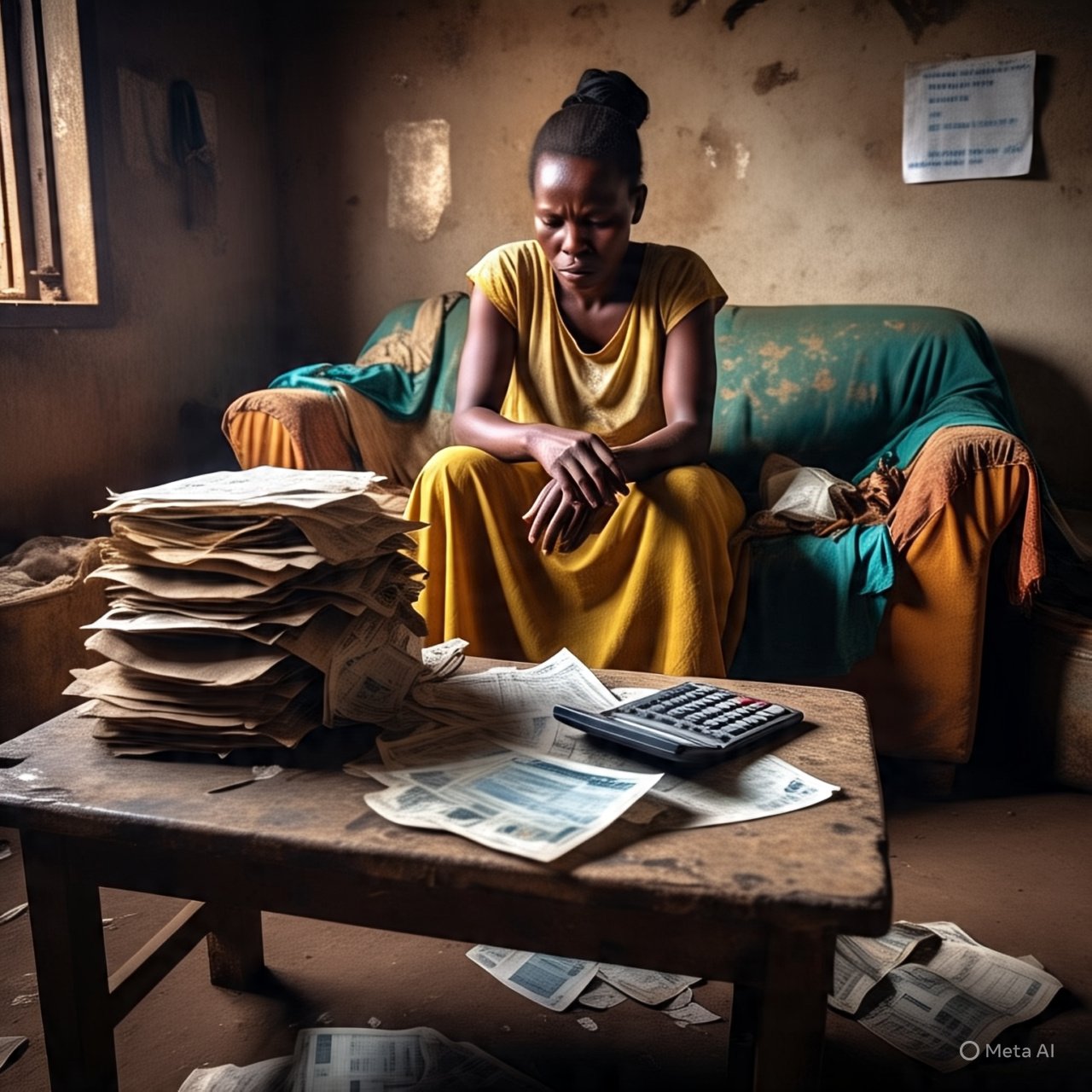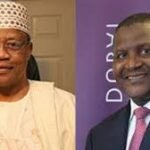By Dr. Charles Obiajulu Ugwu
We live tethered.
Not just to jobs, families, nations, or beliefs but to something far older, more intimate, and less named. Debt.
Not merely the kind tallied in balance sheets or pinned to credit scores, but the deeper, heavier kind.
The debt of existence. The accumulated gravity of everything we owe to others, to ourselves, to time,
to fate, to institutions, to invisible hands and inherited ghosts.
From the moment we are born, we enter a world not of blank slates but of ledgers already inked in obligations.
To be held by another human at birth is already to owe. The debt of care. Of feeding. Of attention. Of sacrifice.
To be born into a family is to inherit generational contracts that were signed before we even had language.
To be born into society is to be bound by expectations, codes, rituals, stories, debts that condition how we must walk, speak, succeed, or surrender.
This isn’t metaphor. It’s the hidden infrastructure of life.
We do not speak of it often, perhaps because we’ve grown used to its shadow. Or maybe because to admit the weight of it would be to collapse under its truth.
Debt is not just a transaction. It is a condition of being human. And like oxygen or time, it is both omnipresent and taken for granted until it turns against us.
THE ARCHITECTURE OF OBLIGATION
Most people think of debt in financial terms: loans, mortgages, interest payments, the dreaded figure on the bank app.
But economic debt is only one layer of the structure. Peel it back, and you find a far more intricate web of unpaid weights.
There are debts of loyalty where we feel compelled to stand by people or systems, even when they’ve long stopped serving us.
Debts of gratitude where a favor or an act of kindness, however small, becomes a moral leash.
Debts of identity where we owe allegiance to a flag, a religion, a community, even when they demand our silence or complicity.
Debts of survival where we trade our labor, time, dreams just to earn the right to eat and breathe another day.
And then, there are the darker debts. The ones no one speaks of. The debts we owe because someone once had mercy on us when we were desperate.
Because someone gave us shelter, or protection, or a second chance. Debts that are never named aloud, but are always present.
Sometimes repaid not in money, but in obedience. In guilt. In submission.
Consider Mariam, a widowed mother of three in Lagos, who spends every waking hour repaying a hospital bill from a childbirth that almost killed her. Or Tunji, a 45-year-old teacher whose uncle paid his university tuition two decades ago, but now controls every major decision in his life, reminding him at every family gathering,
“You’d be nothing without me.” These aren’t just financial burdens. They’re life contracts open-ended, emotionally taxing, and socially reinforced.
Even the most powerful are not exempt. The billionaire owes an image. The celebrity owes their brand. The leader owes their benefactors.
The activist owes their cause. No one escapes the economy of obligation.
DEBT AS A TOOL OF CONTROL
Here’s what makes debt so dangerous: it masquerades as fairness.
We are told that to owe is to be responsible. That paying your debts is the mark of a good person. That accountability is noble. That the system is just.
But what if the very architecture of our debts is unjust? What if the terms were never fair to begin with?
A child does not choose to be born into poverty, yet spends their life owing the world proof of their worth.
A woman does not choose to live under patriarchy, yet is told she owes gratitude for every opportunity granted to her.
A worker does not choose to compete in a rigged labor market, yet is shamed for failing to thrive.
Debt, then, becomes a leash. A way to keep people in place. To make them grateful for crumbs. To make them tolerate exploitation.
To make them accept indignity. It conditions obedience not through force, but through moral pressure. You owe. So you stay. You obey. You comply.
And when you can’t pay? That’s when the shame arrives.
Shame, not interest, is the real weight of debt.
THE SOLITUDE OF THE DEBTOR
To carry debt is to live with a shadow few others can see. It isolates. It silences. It eats away at dignity.
People speak often about their struggles. Their failures. Even their addictions. But rarely about the debt they carry unless it’s in tidy, abstract terms.
Because real debt is messy. It’s emotional. It’s humiliating. It means we are not in control. That we are beholden. That someone or something owns a piece of our freedom.
And not all debts are repayable.
How do you repay a parent who gave up their dreams for you, but now controls your every move? How do you repay a system that rescued you with one hand and robbed you with the other?
How do you repay the ghosts of your past who whisper, “you owe us your success, your loyalty, your silence”?
Some debts are traps. The more we pay, the deeper we sink. Because they weren’t designed for resolution. They were designed for obedience.
A WORLD BUILT ON IOUs
Zoom out. The entire global system is a dance of debts.
Nations owe to institutions. Corporations owe to shareholders. Citizens owe to states. Cultures owe to myths. Even the future owes to the past.
Climate change is the debt of centuries of unchecked industrialization. Inequality is the debt of colonization. War is the debt of unresolved hate passed from one generation to another.
We are all, in some sense, debt collectors and debtors at once. Trapped in an ecosystem of endless IOUs some fair, most not.
And here’s the irony: the wealthiest nations are often the most indebted. The most powerful individuals, too. Debt does not care for abundance. It only cares for control.
WHEN DEBT BECOMES IDENTITY
Perhaps the most dangerous evolution is this: debt is no longer something we carry. It is something we become.
We internalize it. Measure our worth by it. Adjust our behavior around it. We no longer just have debts we are debts.
A job applicant is a debt waiting to be paid off in productivity. A refugee is a debt to humanitarianism. A student is a debt to potential. A partner is a debt to love.
An activist is a debt to a cause.
We no longer see people. We see what they owe. Or what they can pay.
This is how systems maintain power. Not by brute force, but by convincing us that we are, at every level, insufficient and therefore must spend our lives earning our right to exist.
THE ILLUSION OF ESCAPE
Can we escape debt? Maybe economically, yes. Some do. But spiritually? Existentially? Socially?
Hardly.
Even those who “make it” often find themselves more bound than before. Now they owe appearances. Expectations. Proof of success.
They owe to those who believed in them. They owe to those who didn’t. They owe to their past selves, their communities, their children. The weight shifts. But it never disappears.
And so we walk dressed in suits, smiles, and dreams while inside, the debt drums on. A quiet, constant whisper: “You are not enough. You have not paid enough.”
WHAT WE CAN DO
If this sounds bleak, it’s because it is. But not hopeless.
The goal is not to eliminate all debts. Some obligations are sacred. Some responsibilities are beautiful. Some debts are bonds that tie us in love and shared humanity.
The question is: which debts dignify, and which destroy?
We must start naming them. Bringing them into the light. Questioning their terms. Challenging their morality. Declining the ones that twist us into servitude or shame.
Resisting the ones that ask for our soul in return for survival.
We must teach each other to forgive debts not just financial, but emotional. We must normalize the act of saying, “You owe me nothing.”
And we must learn to say, “I owe myself freedom.”
And perhaps, most radically, we must dare to imagine a world where worth is not measured in repayment. Where help is given without expectation.
Where care is not collateral. Where existence is not a loan.
IN THE END
Debt will not vanish. But its grip on our psyche can loosen.
We must unlearn the idea that we are, at our core, deficits. We are not walking liabilities. We are not balances waiting to be cleared. We are beings. Human, flawed, generous, afraid, luminous.
And while the ledgers may never close, perhaps the story can change.
From one of owing.
To one of belonging.
To one of enough.
Let the unpaid weight be seen. Let it be felt. Let it be reckoned with. And then, perhaps, let it be lifted if not from the world, then at least from the soul.
For all those silently carrying what the world cannot see. You are not alone.
ABOUT THE AUTHOR
Dr. Charles Obiajulu Ugwu is a strategic thinker, social analyst, and knowledge architect focused on the intersection of human transformation, systemic insight, and leadership evolution.
Follow us on all social media platforms @dailyquery for news and analyses around the globe.


























